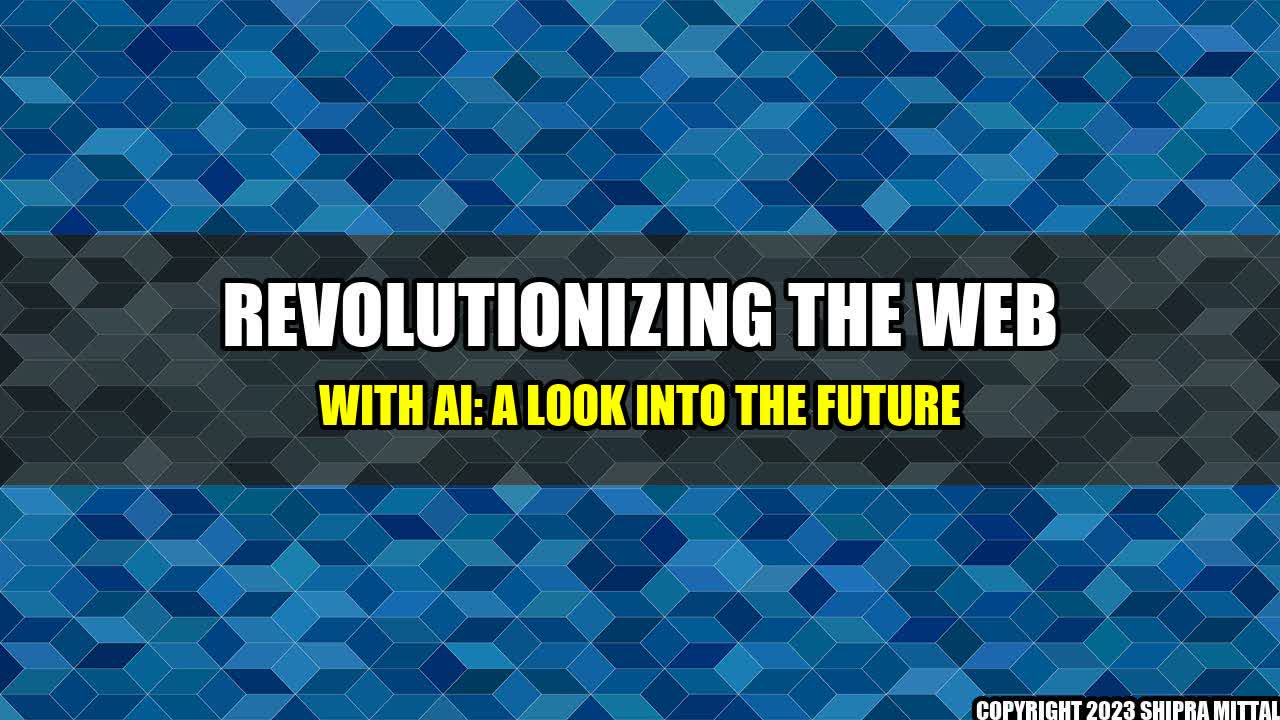The Power of AI in Web Development
Imagine you‚??re browsing the Web looking for a new pair of shoes. You come across two websites that sell the same brand and style of shoes at the same price. But one website offers personalized recommendations based on your browsing history and an interactive chatbot that answers your questions almost instantly. Which website are you more likely to make a purchase from? This scenario highlights the immense potential of AI in transforming the Web experience for users.
AI is already being leveraged in many ways to enhance the user experience on the Web. From streamlined customer service interactions and personalized content to optimized search results and targeted advertising, AI has the power to make the Web more efficient, engaging, and intuitive for everyone.
Let‚??s take a closer look at some real-life examples of how AI is transforming the Web as we know it.
Real-life Examples
One of the most prominent applications of AI in Web development is natural language processing (NLP). NLP allows chatbots and virtual assistants to understand and interpret human language, which can be used to provide personalized customer service and enhance the overall user experience. Companies like Amazon, Google, and Microsoft are leading the charge in this field with their respective virtual assistants, Alexa, Assistant, and Cortana.
Another example comes from Spotify, which uses machine learning algorithms to curate personalized playlists for individual users. By analyzing listening history, demographics, and other data points, Spotify is able to create unique playlists that adapt and evolve with each user's listening habits.
AI is also being used to optimize website layouts and design. The Grid, for example, is an AI-powered website builder that uses machine learning to automatically generate website layouts based on user content and preferences. This reduces the time and effort required to design a website from scratch and ensures a consistent user experience across all devices.
Leading Companies
As mentioned earlier, companies like Amazon, Google, and Microsoft are at the forefront of AI development for the Web. But they‚??re not alone. Other notable players include IBM, which has developed its own AI platform, Watson, that can be used for a variety of Web-based applications. Adobe is also integrating AI into its Creative Cloud suite, which includes tools for website design and development.
Smaller startups are also exploring the potential of AI for the Web. For example, Wibbitz is a platform that automates video creation for publishers and brands ‚?? from script to final cut ‚?? using AI and machine learning algorithms. And Gridspace is a company that uses NLP to analyze and interpret customer feedback from online reviews and social media.
Conclusion
- AI is already revolutionizing the Web and transforming how we interact with it.
- Leading companies such as Amazon, Google, and Microsoft are at the forefront of AI development for the Web, but smaller startups are also making waves in this space.
- As AI continues to advance, we can expect even more personalized, efficient, and intuitive Web experiences in the future.

Akash Mittal Tech Article
Share on Twitter Share on LinkedIn